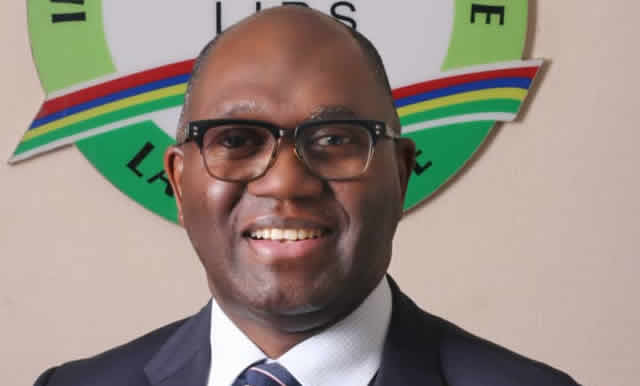By BASHIR ADEFAKA
Failure to comply is a contravention of the provisions in Sections 7(1), 8 and 9 of the Hotel Occupancy and Restaurant Consumption Fiscalization Regulation 2017 which attracts penalties as stipulated in Sections 11(2) of the HORC Law 2009.
The Lagos State Internal Revenue Service (LIRS) has announced the immediate deployment of an upgraded process for the collection of Hotel Occupancy and Restaurants Consumption Tax (HORCT) in Lagos State.
Executive Chairman of the LIRS, Mr. Ayodele Subair, in a public notice directed at members of the public, operators and owners of hotels, event centres, restaurants, bars and other related facilities in Lagos State, said the new collection process called the Eco Fiscal System (EFS) is an automated invoicing solution, designed to revolutionize the collection of consumption taxes in Lagos State.
He stated that the EFS evolution is in furtherance of LIRS’ commitment to building convenience into the payment of taxes and easing compliance with tax laws.
“This technological advancement marks a significant leap in our continuous efforts to enhance revenue collection, streamline processes, and improve efficiency in tax administration. It simplifies compliance and improves accuracy”.
A statement sent to The DEFENDER from Service Monday evening explained that traditionally, HORCT collection has been a tedious task for operators in the past, the manual process often led to errors, penalties and increased costs.
However, it said, with LIRS’ cutting-edge software, businesses can now automate and digitize their invoicing and collection processes.
Built with operators in this sector in mind, EFS offers real-time online consumption tax billing, collection monitoring, and instant issuance of receipts with a unique invoice number. It also reduces compliance costs, facilitates easy administration and reconciliation for HORCT collections, and fosters transparency, the statement said.
Mr. Subair affirmed that by adopting the EFS, businesses can ensure accurate calculations, eliminating risk of mistakes associated with manual data entry. The system automatically applies relevant tax rates, saving businesses valuable time and resources. He added that the software provides secure and efficient record-keeping, simplifying audits and minimizing compliance risks.
“Our goal is to empower businesses with innovative solutions that enhance their operational efficiency and minimize compliance challenges. Businesses can focus on their core operations, leaving the complex task of tax compliance to our reliable and automated system.”
He enjoined all operators in the hospitality sector to adopt the Eco Fiscal System (EFS), emphasizing that operations on the system become effective IMMEDIATELY and Failure to comply is a contravention of the provisions in Sections 7(1), 8 and 9 of the Hotel Occupancy and Restaurant Consumption Fiscalization Regulation 2017 which attracts penalties as stipulated in Sections 11(2) of the HORC Law 2009.
Subair reiterated that EFS is compatible with various e-commerce platforms and can seamlessly integrate with existing accounting systems, ensuring a smooth implementation process. He promised that LIRS officials would be visiting establishments in the hospitality industry, to integrate the software with existing systems and provide necessary assistance for a seamless transition to the EFS platform.
“For further enquiries, taxpayers are encouraged to visit the LIRS website: www.lirs.gov.ng or call the customer service hotline on 0700 2255 5477”.




